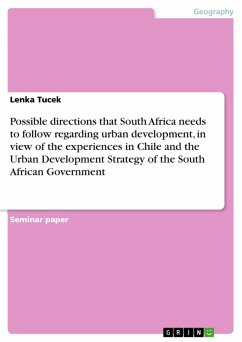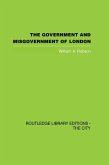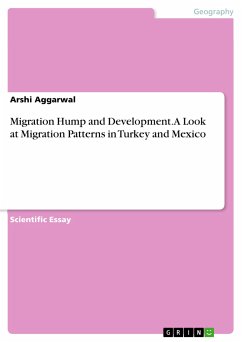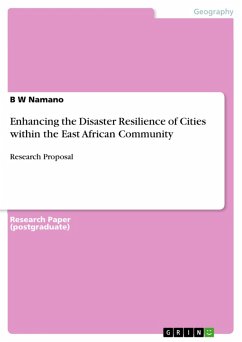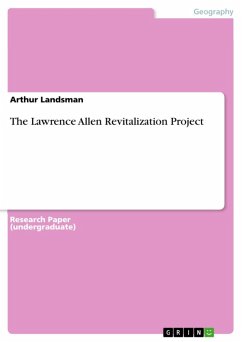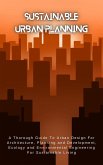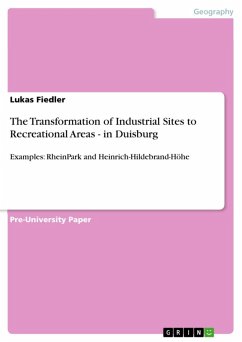Seminar paper from the year 2001 in the subject Geography / Earth Science - Demographics, Urban Management, Planning, grade: 1 (A), Nelson Mandela Metropolitan University (School of Social Sciences and Humanities), course: Course: Urban Anthropology (SA 402), language: English, abstract: Apartheid has been overthrown, a democratic government has been elected and South Africa is openeing itself to the world. But for the administration, the problems have grown more urgent, and the country now faces more than the already tragic heritage of apartheid. Due to decades of apartheid mismanagement urban areas are extremely inequitable and inefficient. They are the productive centres of the economy, but the majority of the urban residents live in very bad conditions and far away from their places of work. The quality of life of the South African people has to be improved massively, through creating jobs and deracialising the cities. Estimates of the present urban population in South Africa vary between 19.6 million and 26 million. By 2020, 75 per cent of the population will live and work in the cities and towns.1 The rate of urban population growth will be higher than for the population growth as a whole. Whereas in 1985 there were 20.7 million of the total South African population, resident in and on the edges of urban areas, by 2020 that will have increased to 43.7 million. 2 In the future, the urban centres, especially the metropolitan areas will function to an even greater degree than today as the social, economic and demographic heart of the country. "It is apparent that African urbanisation levels certainly increase markedly over the next decade, and it is important that all decision makers involved in forward planning take account of this phenomenon."3 In this assignment I will give an insight to the Urban Development Strategy of the Government of National Unity (GNU) (Chapter 2). Special attention will be given to the housing issue in Chapter 3. In Chapter 4 I will discuss the experiences in Chile, how different political systems influenced the urbanisation process in various ways. Chapter 5 deals with some national and international aspects, which have to be considered when strategies for development are designed and Chapter 6 includes some final comments on the urban development issue. 1 http://www.polity.org.za/govdocs/rdp/urban1.html page 2. 2 Smith, 1992: page 232. 3 Nattrass, 1983: page 21.
Dieser Download kann aus rechtlichen Gründen nur mit Rechnungsadresse in A, B, BG, CY, CZ, D, DK, EW, E, FIN, F, GR, HR, H, IRL, I, LT, L, LR, M, NL, PL, P, R, S, SLO, SK ausgeliefert werden.

